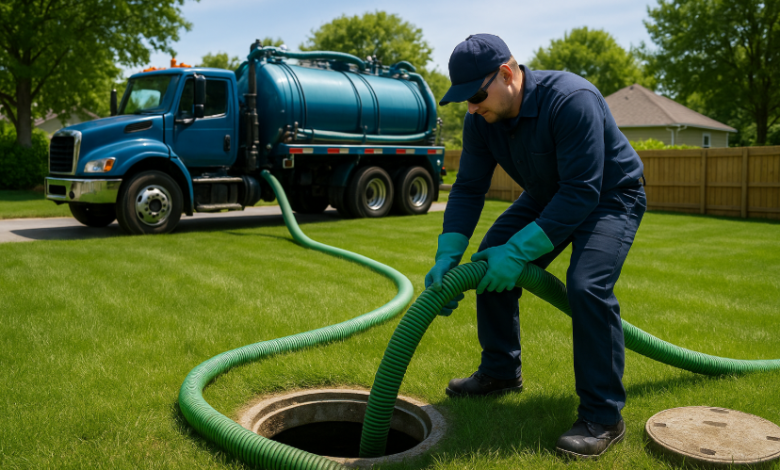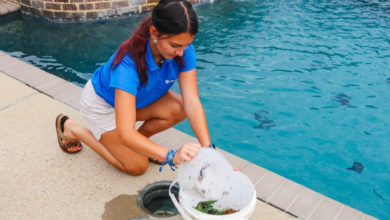Septic Tank Cleaning in Lismore: What Homeowners Need to Know

For many Lismore residents, a septic system is just another part of rural or semi-rural living, quietly whisking waste away with very little fuss. But when was the last time you thought about what’s going on underground? Neglecting septic maintenance can lead to some unpleasant surprises (trust us, no one wants that kind of emergency on a weekend). If you’re wondering how to keep your septic system happy and avoid headaches down the track, you’re in the right place. Let’s demystify septic tank cleaning Lismore services, so that you can protect your home, your wallet, and even your backyard barbecue plans.
Understanding Septic Systems in Lismore
Septic systems are a common sight in Lismore, especially for homes not connected to the town sewer. These self-contained wastewater treatment setups typically include a septic tank and a drainage field (sometimes called a leach field or absorption trench). Wastewater from your sinks, toilets, and showers flows into the underground tank, where solids settle and break down naturally, while liquid effluent is filtered through the drainage area.
Local soil types and rainfall patterns around Lismore make proper maintenance even more important. Heavy rain can saturate soils and put extra pressure on septic systems, which is why understanding how yours works and its limitations is so critical. Whether your property sits on red volcanic soils or the region’s heavier clay, the basic principle remains: a well-functioning septic system keeps you, your family, and the local environment healthy.
Why Regular Septic Tank Cleaning Is Essential
Unlike the endless pile of laundry or the weekly bin night, septic tank cleaning doesn’t have to happen all that often, but when it does, it’s vital. Over time, sludge (the stuff that doesn’t break down) builds up on the bottom of your tank. If this isn’t periodically removed, solids can overflow into the drainage field, causing blockages, clogging soil pores, and potentially leading to costly repairs.
Regular cleaning, also known as “pumping out,” ensures your system works as intended and extends the lifespan of the tank itself. Environmental authorities in Lismore recommend having your tank checked every three to five years, though large families or heavy water use might mean more frequent attention. Staying on top of septic tank cleaning isn’t just about dodging disaster; it helps prevent groundwater contamination, protects local waterways (which Lismore folks are pretty passionate about), and keeps your home’s plumbing running smoothly.
Signs Your Septic Tank Needs Cleaning
Septic tanks are a bit like toddlers; when they’re unhappy, they’ll quickly make it known. Here are some signs it’s time to call in the professionals:
- Slow-draining sinks, tubs, or toilets: If your fixtures are suddenly sluggish, your tank or drainage field could be struggling.
- Bad odors: That telltale “septic whiff” in the backyard or near drain openings is never good news.
- Pooling water: Unexpected damp patches or standing water, especially near the tank or drainage area, could indicate overflow or blockage.
- Unusually lush grass: It sounds good, but if the ground over your tank or drainage field is much greener, it could mean wastewater is surfacing.
If you spot any of these issues, don’t wait. A quick response can prevent bigger (and smellier) problems.
The Septic Tank Cleaning Process Explained
Curious about what actually happens during a septic tank clean-out in Lismore? Here’s how the process usually goes:
- Inspection: A licensed technician will first locate your tank (sometimes trickier than it sounds) and assess the condition using inspection ports and, if available, tank records.
- Pumping: Using specialized vacuum trucks, all liquids and accumulated sludge are efficiently pumped out. This keeps things tidy and minimizes odor.
- Rinsing and Checking: Technicians may wash down the inside and inspect for cracks, leaks, or structural issues. Catching a crack early is always better than dealing with major repairs later.
- Disposal: The waste is transported and treated in line with Lismore’s local health and environmental guidelines, so you can be confident it won’t damage the environment.
The whole process generally takes just a couple of hours but provides peace of mind for years to come. Always use a certified local professional; they’ll be familiar with the quirks of Lismore’s septic regulations and terrain.
See also: Keeping It Clear: The Smart Homeowner’s Guide to Pools
Tips for Maintaining a Healthy Septic System
Thankfully, a little everyday care can go a long way for your septic tank. Here are some homeowner-friendly strategies:
- Watch what you flush: Only human waste and toilet paper. Wet wipes, sanitary items, fats, and harsh chemicals can cause build-up or kill the helpful bacteria your tank relies on.
- Spread out water use: Doing all the laundry in one go can overwhelm the system—space out showers, washing, and dishwashing throughout the week.
- Fix leaks quickly: Dripping taps, running toilets, or leaking pipes can flood the system and push water through before solids settle.
- Protect the drain field: Avoid parking or building on top, and don’t plant water-loving trees nearby.
- Arrange regular inspections: Even if everything seems fine, a quick check every few years helps you spot potential issues early.
A bit of mindfulness can help you avoid emergency pump-outs, keep your backyard pleasant, and even boost your property value when it’s time to sell.
Conclusion
Septic tank cleaning might not be glamorous, but staying proactive is the best way to sidestep big hassles and protect what matters: your home, your health, and Lismore’s stunning environment. By understanding your system, recognizing the warning signs, and scheduling regular maintenance, you’re investing in peace of mind. If you’re unsure about the state of your system, reaching out to a reputable local professional is always a smart move. After all, when it comes to septic tanks, what you can’t see can hurt you, so a little care now is worth a lot down the track.




